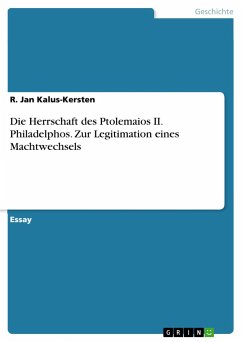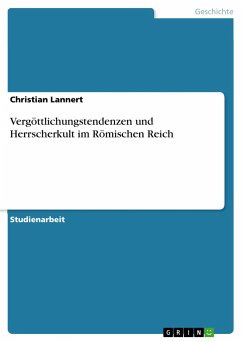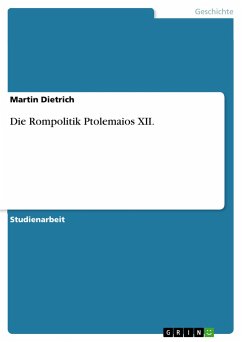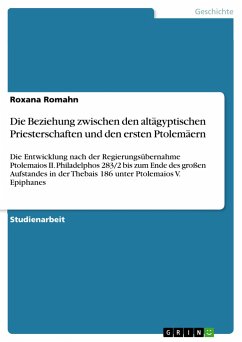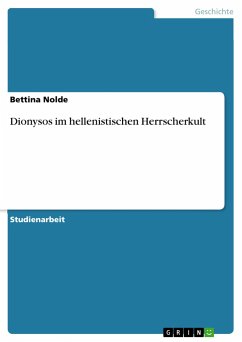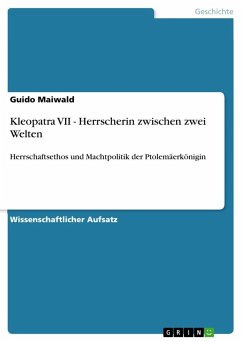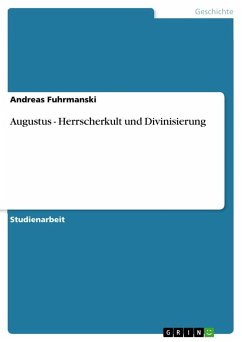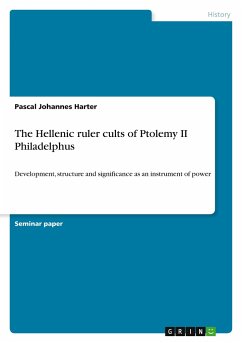
The Hellenic ruler cults of Ptolemy II Philadelphus
Development, structure and significance as an instrument of power
Versandkostenfrei!
Versandfertig in 1-2 Wochen
16,95 €
inkl. MwSt.

PAYBACK Punkte
0 °P sammeln!
Seminar paper from the year 2023 in the subject World History - Early and Ancient History, grade: 1,0, University of Heidelberg (Seminar für Alte Geschichte und Epigraphik), course: Die hellenistischen Königreiche (Proseminar), language: English, abstract: This work is dedicated to the question of how cultic worship and public deification developed within the framework of the Hellenic (i.e. originally Greek-Macedonian) religious and mythological world of the Ptolemies during the reign of Ptolemy II (ca. 285 [?]/282-246 BC) in the Egyptian core empire and in Hellenic areas of influence and wh...
Seminar paper from the year 2023 in the subject World History - Early and Ancient History, grade: 1,0, University of Heidelberg (Seminar für Alte Geschichte und Epigraphik), course: Die hellenistischen Königreiche (Proseminar), language: English, abstract: This work is dedicated to the question of how cultic worship and public deification developed within the framework of the Hellenic (i.e. originally Greek-Macedonian) religious and mythological world of the Ptolemies during the reign of Ptolemy II (ca. 285 [?]/282-246 BC) in the Egyptian core empire and in Hellenic areas of influence and whether, by whom and for what purpose they were specifically instrumentalised. Due to the complexity of the topic and the abundance of ancient sources and modern research literature, it makes sense to deal only with the Hellenic manifestations of the ruler cult during the reign of Ptolemy II. It should not be neglected that Egyptian ruler cults and Graeco-Egyptian mixed cults also existed in parallel. However, during the reign of Ptolemy II, in addition to the poleis of the eastern Mediterranean and Alexandria in the Egyptian core empire, larger, separate Hellenic communities, the majority of whose members were of Greek, Macedonian and Thracian descent, are documented. For these people, the Greek language, gods and culture formed the basis of their society, which is why separate Hellenic ruling cults were not just a marginal phenomenon, but a defining element of the Ptolemaic Empire.



